I have been drinking kefir each morning for the last 3 months. It is a fermented milk drink that’s gaining well-deserve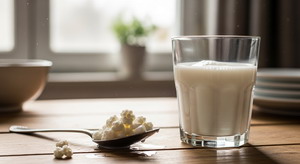 d attention for its impressive health benefits. Whether you’re new to kefir or have been drinking it for years, understanding what makes it so beneficial can help you make informed choices about incorporating it into your wellness routine.
d attention for its impressive health benefits. Whether you’re new to kefir or have been drinking it for years, understanding what makes it so beneficial can help you make informed choices about incorporating it into your wellness routine.
What Makes Kefir Special?
Kefir is a fermented milk drink with origins in the Caucasus Mountains, where it’s been consumed for centuries. What sets it apart from other fermented dairy products is its unique fermentation process and diverse probiotic content. While yogurt typically contains a handful of bacterial strains, kefir can contain several dozen strains of beneficial bacteria and yeasts working together to create a powerhouse of gut health benefits.
The Health Benefits
Gut Health and Digestion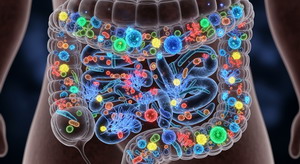
The most significant benefit of kefir comes from its probiotic content. These beneficial microorganisms help balance your gut microbiome, which plays a crucial role in overall health. Regular consumption of kefir may help with digestion, reduce bloating, and support regular bowel movements. The diverse strains of probiotics and good guy yeasts in kefir work synergistically to create a healthier intestinal environment.
Lactose Tolerance
Here’s something many people find surprising: even if you’re lactose intolerant, you may be able to enjoy kefir. The fermentation process breaks down much of the lactose in milk, and the probiotics present can help digest what remains. Many of my patients who struggle with regular milk find they can tolerate kefir without any digestive discomfort.
Nutrient Density
Beyond probiotics, kefir is nutritionally impressive . It’s an excellent source of high-quality protein, calcium, B vitamins (particularly B12), and vitamin K2. These nutrients support everything from bone health to energy production and nervous system function.
. It’s an excellent source of high-quality protein, calcium, B vitamins (particularly B12), and vitamin K2. These nutrients support everything from bone health to energy production and nervous system function.
Bone Health
The combination of calcium, vitamin K2, and improved nutrient absorption makes kefir particularly beneficial for bone density. Vitamin K2 helps direct calcium to your bones rather than your arteries, making it an important nutrient that many people don’t get enough of.
The Gut-Brain Connection
There’s growing scientific interest in how gut health affects mental wellbeing. Some people report improved mood and mental clarity when regularly consuming fermented foods like kefir. While more research is needed, the gut-brain axis is a fascinating area that highlights how interconnected our body systems truly are.
Store-Bought vs. Homemade Kefir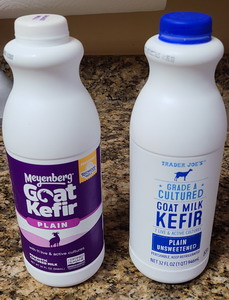
Many excellent kefir products are available in stores, including varieties made from goat’s milk, which some people find easier to digest than cow’s milk. Store-bought kefir is made with selected starter cultures that provide consistent flavor and 4 to 18 probiotic strains.
However, making your own kefir at home offers some distinct advantages. Homemade kefir uses live kefir grains (which aren’t actually grains but clusters of bacteria and yeast) that create a more diverse probiotic culture of 50 to 100 strains of good guy bacteria and yeasts. The process is surprisingly simple: you add kefir grains to milk, let it ferment at room temperature for 12-48 hours depending on your taste preference, then strain out the grains and repeat.
Getting Started with Homemade Kefir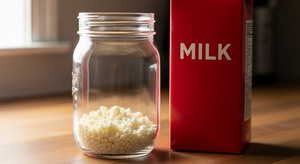
If you’re interested in making your own kefir, here are some tips:
Choosing Your Milk: Regular cow’s milk, goat’s milk, or A2 cow’s milk all work well. A2 milk contains only the A2 beta-casein protein (not the A1 protein found in most cow’s milk) and many people find it easier to digest. The kefir grains will adapt to whichever milk you choose.
Starting Out: When you first get kefir grains (available at health food stores or online), they may take a batch or two to fully activate and adjust to their new environment. Don’t be discouraged if your first batch isn’t perfect. The grains need time to wake up and establish their rhythm.
Flavor Development: Fresh homemade kefir often tastes different from store-bought versions. It may be tangier, slightly yeasty when the grains are new, and the consistency can vary. Mine smells like bread dough for a raised yeast bread. As your grains mature and the bacterial cultures strengthen, the flavor typically becomes more balanced with that characteristic tangy, creamy taste. You can control the sourness by adjusting fermentation time—longer fermentation creates a more tart product.
Care and Maintenance: Kefir grains are living organisms that multiply over time. Once established, they’re quite resilient. If you need a break, simply store them in fresh milk in the refrigerator, changing the milk weekly. When you’re ready to start again, they’ll reactivate after a batch or two.
Maximizing the Benefits
To get the most from your kefir, consider these stra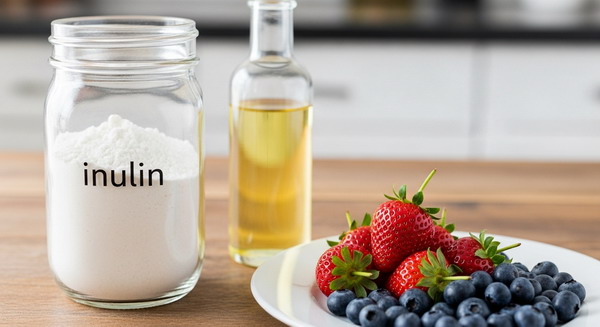 tegies:
tegies:
Pair with Prebiotics: Prebiotics are fibers that feed beneficial gut bacteria. Adding prebiotic fibers like inulin or fruit pectin to your kefir (after fermentation) can enhance its gut health benefits. These fibers help promote the production of short-chain fatty acids like butyrate, which provide energy to your colon cells and have anti-inflammatory properties. Start with small amounts and increase gradually to avoid digestive discomfort.
Enhance with Healthy Fats: Adding medium-chain triglycerides like caprylic acid (found in MCT oil or coconut oil) can provide quick energy and support ketone production, which benefits brain function and mental clarity.
Make It Delicious: If plain kefir is too tart for your taste, blend it with fresh or frozen fruit, mix it with yogurt, or add a natural sweetener like stevia. These additions don’t diminish the probiotic benefits and can make kefir more enjoyable to consume regularly.
A word of caution

While kefir offers many benefits, start slowly if you’re new to it. The influx of probiotics can cause temporary digestive adjustment—some gas or changes in bowel movements are normal initially. Begin with small amounts (a quarter to half cup daily) and gradually increase as your system adapts.
The Bottom Line
Whether you choose store-bought or homemade, kefir is a nutrient-dense food that can be a valuable addition to a healthy diet. Its probiotic content, digestibility, and nutritional profile make it an excellent choice for supporting gut health, immune function, and overall wellness. The key is consistency—regular consumption over time is what provides the most benefit.
If you’re interested in incorporating kefir into your health routine or have questions about whether it’s right for you, please don’t hesitate to discuss it at your next appointment.
Take care,
David
 |
Last week was Susie’s birthday, and we all got away to Black Angus for a little celebration. We did a lunch get together because none of us like to eat much in the evening. Good food and good conversation was had by all and Susie is now officially one year older.
|
Tooth repair on the horizion
A special gel that can be painted on to teeth showing erosion has shown that it will regrow new tooth enamel by attracting the minerals it needs from the saliva.
More
___________________________
“The power of now. There is only this now moment. All action and all feeling only exist in this now moment. The past is gone and the future doesn’t exist yet.“~David DeLapp
_____________________________________
Henna for liver fibrosis? 
Liver fibrosis is created by special liver cells that manufacture scar forming collagen. Researchers looking to block this process in order to stop liver fibrosis tested almost 2000 compounds and discovered that the substance in henna that produces the color used in temporary tattoos blocks these cells from producing the scar tissue.
More
____________________________
“To love is to happily embrace and participate with what is. Love respects and appreciates things and people as they are, not as we want them to be.“
~David DeLapp
________________________________________
Hair regrowth?
Researchers have discovered that irritating the fat cells just under the skin causes them to send signals to dorman t hair follicles triggering them to start regrowing hair. They used a chemical irritant (sodium lauryl sulfate) and watched as immune cells rushed into the area and broke down fat cells causing the release of the signal chemical to the hair follicles. t hair follicles triggering them to start regrowing hair. They used a chemical irritant (sodium lauryl sulfate) and watched as immune cells rushed into the area and broke down fat cells causing the release of the signal chemical to the hair follicles.
More
________________________
“Effectiveness is the measure of truth. All systems, beliefs, and organizations are made up. To determine if something truly works we must judge the tree by its fruits. What outcomes result from the application of these beliefs on all levels?“
~David DeLapp
|

